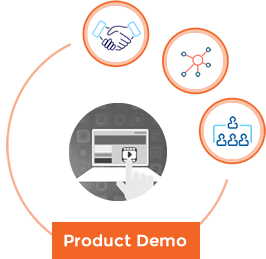The chosen quality management software that your company plans to install needs to fit all short-term and long-term goals simultaneously, besides easing the complex regulatory processes required to function across a large workplace with varied workforce assigned on different tasks.
Management of Non-Conformance
NCM is an integral part of the QMS platform, to enable continuous improvement. The organisation will be able to use a centralised database to capture, track and maintain non-conformance records that are accurate and auditable, available transparently to departments, accessible from different locations. This gives the company the ability to exceed audit requirements, meet non-conformance, corrective and preventive actions requirements, adhere to standards like ISO 9001 &1400 and OHSAS 19001.
Complaints Management Feature
The QMS software hosts the complaints management system to retain customers, check compliance of industry regulations and avert any potential product liability litigation. Without a good quality system in place, efficiency, costs, safety and compliance are impacted adversely. The software also includes automation, change management, version control and workflows to meet all requirements.
Change Management Feature
The QMS has change management built in for closed-loop quality, with version control, workflows and automation. The system shall be integrated into any enterprise management system. Full transparency is maintained here in this process too. At any point of the process, change requests can be submitted and control plan revisions can be made.
Corrective and Preventive Action (CAPA)
CAPA and product registration are part of the system, to allow execution of corrective and preventive actions to meet compliance with standard industry regulations. CAPA provides a controlled environment, with workflows that reduce repetition of issues and ensures defined CAPA solutions and processes which are to be adhered to.
Document Control Management
This feature organises all relevant documents put onto a central database, with approval workflows and audit trails, which helps eliminate redundancy of documents, besides offsetting the risks of manufacturing the products without SOPs that are out-of-date. This feature organises documents efficiently.
Managing Audit Requirements
The QMS software reduces risk by implementing harmonised and consistent processes, besides managing securely all information hosted in a centralised system. It can also facilitate compliance with, not only industry standards, but global government regulation too. It provides the data needed to evaluate audit system effectiveness. It offers authoring tools required by auditors in the field.
Employee Training Feature
The QMS can accommodate employee training and document management features, relevant to the company. A single interface of the software manages training initiatives to maintain a comprehensive inventory of employee education levels, certification records and job description. Employee certifications are kept up-to-date in a full employee lifecycle management system that can maximise effective skill development internally.
The QMS software has an evolving role
The size of your operations and catalogue of products are important factors in a growth plan. The world’s best companies generally opt for a ‘lean and agile’ QMS which can be a guideline for you too. The role and scalability of the QMS software is significant. From document control, and compliance, the system should evolve to support quality, excellence and transparency, rapidly adapting to complex processes to meet regulation and market needs ahead.
Aura quality management system aims to keep any organisation competitive over a long time. Make use of our superlative web-based quality management software that supports in adhering to high quality and ISO standards. Aura QMS and is scalable geared to meet future requirements of most companies across wide range of industries.
For more information, please visit www.auraqualitymanagement.com or schedule a free demo today.





